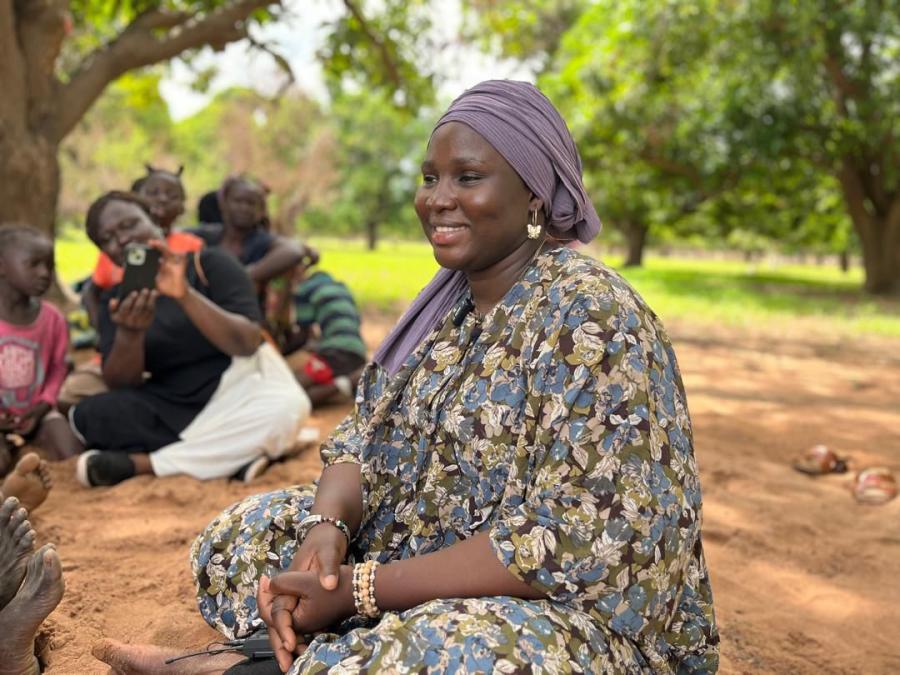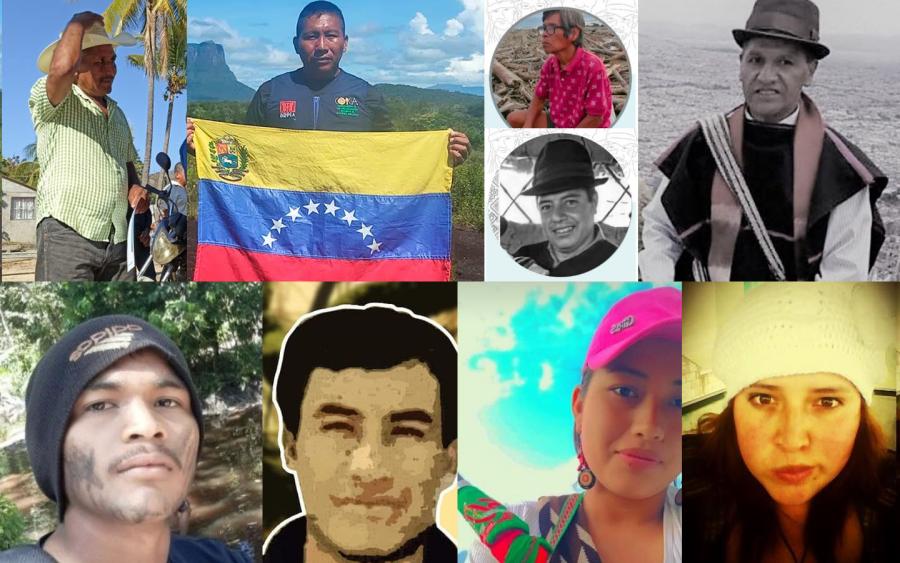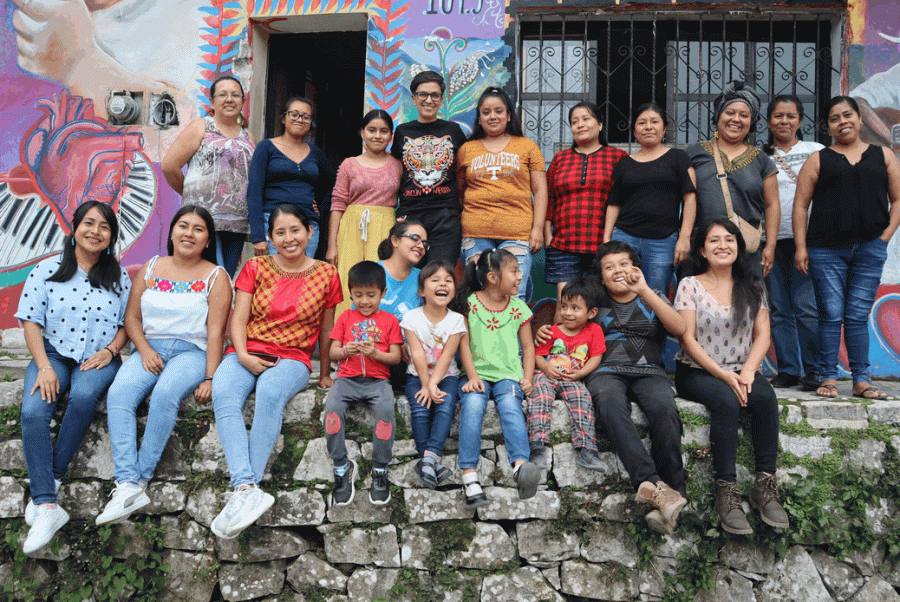
Cultural Survival and Toronto-based WACC are pleased to announce the first round of grantees of our Community Media Grants Project partnership, an initiative strengthening international Indigenous community radio stations' broadcast infrastructure and systems. Ensuring that Indigenous communities have a viable and critical medium for dissemination of news, information, community events, historical documentation, education and entertainment, the project aims to enhance community efforts to establish and ensure sustainability of Indigenous community-controlled media.
Cultural Survival's Community Media Grants Project provides opportunities for international Indigenous community radio stations to apply for funding through a nontraditional, culturally appropriate and dynamic grants process designed to meet the needs of these flourishing community broadcast systems. Grants provide funding for equipment, training in production and journalism, legal support and content production as well as specific trainings needed to ensure sustainable and impactful communication platforms and regional networks that support and advance Indigenous communities' rights and ability to engage in relevant issues affecting their wellbeing.
Ten projects were selected in Guatemala, Panama, Peru, and Nepal and granted a total of $135,220.
Guatemala:
Launching Radio Xyaab' Tzuul Taq'a, El Estor, Izabal
In 2013, El Estor's Maya Councils determined that radio was an important means of communication and information for Q'eqchi people, since television and internet are highly monopolized by commercial interests and expensive. Funding will cover all radio equipment and training of radio volunteers in technical, radio production, and investigative journalism. The station will reach 140 Q'eqchi' communities with more than 45,000 people. Defensoria Q´eqchi´(AEPDI), a regional NGO implementing the project, is contributing to the project with the purchase of land for the station.
Solar Power for Radio Nimlajacoc, Alta Verapaz
Radio Nimlajacoc has been serving the Q'eqchi' community since 2012, running on a generator because there is no electricity in the community. The station has frequently expressed their dream of becoming a solar-powered radio, decreasing their carbon footprint and increasing their daily on air hours. Since the purchase of the solar panels in December of 2016, they now broadcast from 5am to 7pm and are training volunteers in radio and solar panel maintenance.
Supporting an Internet Cafe at Radio Ixchel, Sumpango, Sacatepéquez
Kaqchikel community station, Radio Ixchel, has been functioning since 2003 and takes pride in their women, youth, and rights focus. A training centre which will include an internet café will help pay the costs associated with running the station. The grant will cover the purchase of equipment for the centre. In addition, they plan to hold workshops on freedom of expression, art and poetry, radio production, and theatre for children in hopes of including more voices of children on air.
Promoting Free, Prior and Informed Consent at Radio Xilotepek, San Luis Jilotepeque, Jalapa
Radio Xilotepek, a Poqomam community station, serves 30,000 residents in Jalapa. Confronted by the growing mining industry in the region, radio has been an important tool for informing communities about the right to Free, Prior and Informed Consent (FPIC) in the face of growing extractive industries. The grant will fund 12 workshops on investigative journalism, technical training for 20 current radio journalists, the organization of a community forum on mining and FPIC, and will cover the purchase of an audio recorder, a camera, and video camera to support their efforts.
Revitalizing the Kaqchikel Language at Radio Sinakan, Chimaltenango
Radio Sinakan is being used to bring back and strengthen the Kaqchikel language and Maya philosophy in Patzun. The grant will fund the purchase of a radio tower and a better antenna, improving the radio signal and extending the broadcast range. Funding will also cover training workshops in broadcasting for women to increase their participation at the station as currently there are no women in their pool of volunteers.
Peru:
Amplifying the Voices of Union de Mujeres Aymaras de Abya Yala (UMA), Puno
Union de Mujeres Aymaras de Abya Yala, a group of 22 Indigenous campesino women devoted to increasing women's political participation and the empowerment of women, use radio as a medium for bringing women's voices to the public. Until now they have been renting air space at a local commercial station. The grant will double their airtime on the radio, give them access to a radio cabin for production and editing, fund one national and one international community radio exchange, and provide opportunities for more women to become community broadcasters from an Indigenous feminist perspective. This grant will also support UMA's first steps towards requesting a radio frequency.
Nepal:
Strengthening Technical Capacity and Women's Participation at Radio Likhu, Radio Namobuddha, Radio Sumatlung, and Radio Kairan
Cultural Survival is supporting the technical capacity building and training of women journalists by making grants to four different Indigenous community stations in remote villages across Nepal. Each station, impacted by the 2015 earthquake, has had to rebuild to some degree and will be purchasing needed equipment such as new transmitters, computers, sound mixers, recorders, and new radio cabins to continue their work. Through the "Promoting Indigenous Women's Voices in Nepal Community Radio" project, the four stations will participate in a gender policy development training. The new policies will be later shared with local communities.
Promoting Indigenous Women's Voices in Nepal Community Radio Project
Indigenous women in Nepal continue to be marginalized and underrepresented in the media. This project will build capacity for at least 21 Indigenous women through a 5-day intensive radio journalism training. Cultural Survival conducted an assessment of needs in preparation for this project and found that the most important skills that women need are basic journalism, investigative radio reporting, and management and marketing skills. The trainings will increase the representation of Indigenous women in community radio, including in management roles. The grant will also support women's production of radio programs focused on Indigenous women's issues.
Panama:
Securing Frequencies for Indigenous Radio Stations
With the support of partner organization, Voces Indigenas Panama, work is currently being conducted in securing legal radio frequencies for four community radio stations in the communities of Kankintu, Kusapin, Sambu and Arimae. In addition, women from each community will be enrolled in a diploma program in broadcasting and radio administration.
Technical Study for Indigenous Community Radio Stations
An electrical engineer from Fundacion Comunicandonos, El Salvador was hired to conduct a technical study for two planned Indigenous community radio stations in Panama. The study will test terrain to find locations that will provide the widest radio coverage, ensure that the stations will not interfere with other frequencies, suggest adequate equipment, and fulfill all necessary requirements demanded by the legal path to obtaining community radio frequencies.



